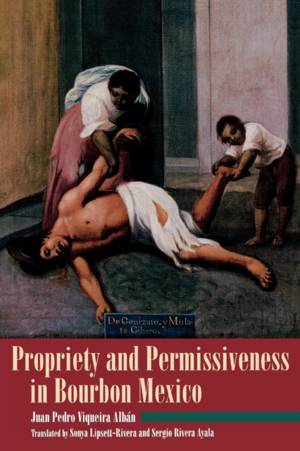
- Retrait gratuit dans votre magasin Club
- 7.000.000 titres dans notre catalogue
- Payer en toute sécurité
- Toujours un magasin près de chez vous
- Retrait gratuit dans votre magasin Club
- 7.000.0000 titres dans notre catalogue
- Payer en toute sécurité
- Toujours un magasin près de chez vous
Description
The eighteenth century in New Spain witnessed major changes: among these, one of the most significant was the adoption of French customs among the upper groups of society in response to the spreading ideas of the Enlightenment. In addition, New Spain's economy and culture were also changing radically. The spread of these French-inspired ideas and customs soon reached the rest of urban society. These new ideas, it has been assumed, brought a relaxation of social customs. But Viqueira Alban takes this assumption, and raises the question: Was it really a period of relaxation of social customs, in this age of 'growth without development?' He discovered that the movement of rural workers and their families to urban centers created a concern within the church and government hierarchy about the threat of disorder, leading to the need for new social restraints. By the end of the eighteenth century, New Spain was characterized by a very rich, agitated, and varied social life. This book explores the history of Mexico City in the eighteenth century, focusing on society, social classes, elite culture and popular culture. Propriety and Permissiveness examines how the elite culture in Mexico City attempted to create more space between themselves and the masses. Their anxiety about their status encouraged laws and practices that enforced social space. Bullfighting, the theater, street diversions, and the game of pelota (called jai-alai in the United States today) are all examined as part of the culture of this period. This new text is ideal for colonial Latin American survey courses, courses on the history of Mexico and Latin American literature, and courses on the popular culture and social history of Latin America.
Spécifications
Parties prenantes
- Auteur(s) :
- Traducteur(s):
- Editeur:
Contenu
- Nombre de pages :
- 280
- Langue:
- Anglais
- Collection :
Caractéristiques
- EAN:
- 9780842024679
- Date de parution :
- 01-09-99
- Format:
- Livre broché
- Format numérique:
- Trade paperback (VS)
- Dimensions :
- 155 mm x 229 mm
- Poids :
- 408 g

Les avis
Nous publions uniquement les avis qui respectent les conditions requises. Consultez nos conditions pour les avis.






